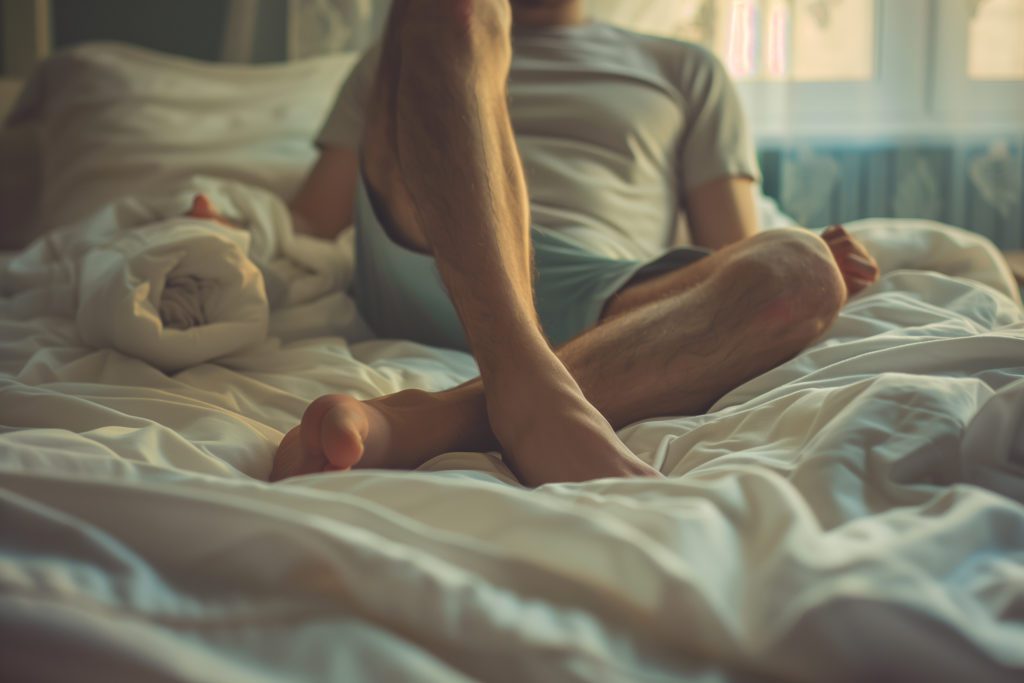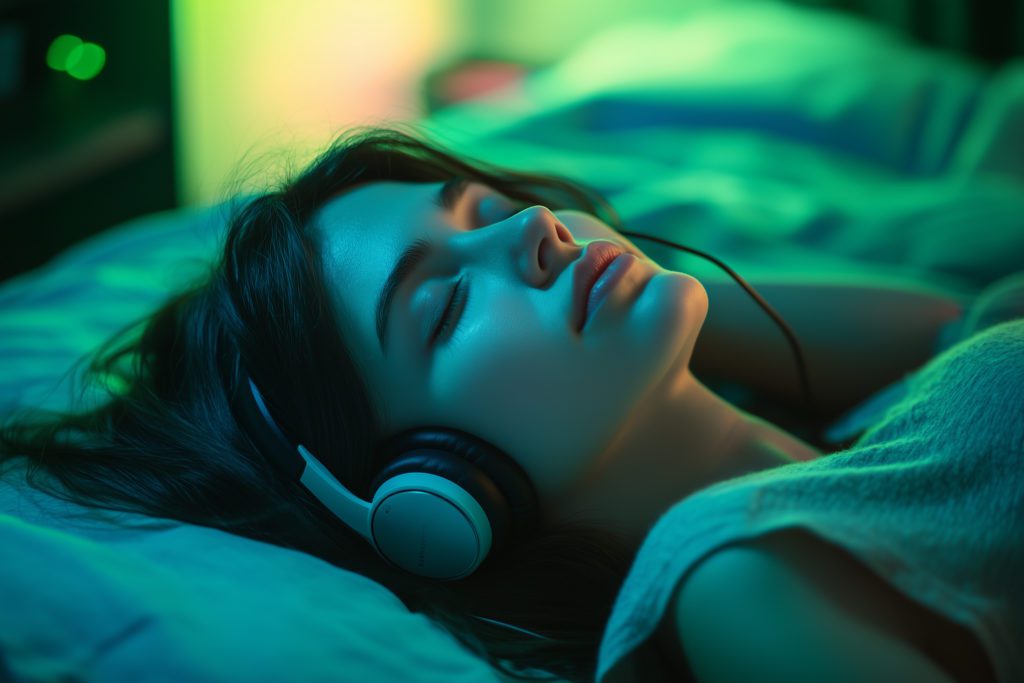
Are CBD Products Effective Sleep Aids? Reviewing the Latest Research
CBD can help those with insomnia get relief. Here’s the latest research and everything you need to know about using CBD for sleep.

Are you sleep-deprived and on a quest for uninterrupted, blissful sleep? If you’re one of the 70 million Americans who have trouble sleeping, you might have considered a cannabidiol (CBD) product to help you get quality sleep. The manufacturers of these products say they can help promote more restful sleep. But, what does the research say? There is some evidence that CBD can help with sleep. However, the research is limited overall. Here’s what we know.
What Is Cannabidiol (CBD)?
Cannabidiol (CBD) is a chemical that comes from cannabis plants. Unlike the cannabis plant’s other psychoactive compound, THC (found in marijuana), CBD isn’t psychoactive. In other words, it doesn’t make you high.
People have long been interested in the health benefits of CBD. Besides sleep, CBD may help with:
- Seizure disorders - Epidiolex, a prescription form of CBD, is FDA-approved to treat seizures.
- Depression - CBD has been found to help with depressive disorders.
- Anxiety - Studies have found that CBD can be helpful for various anxiety disorders.
- Pain relief - Because it acts on the endocannabinoid system, CBD can help relieve pain.
Is CBD Legal?
The 2018 Farm Bill separated hemp from the legal definition of marijuana in the federal Controlled Substances Act. This made some hemp-derived CBD products legal. To be federally legal, the CBD product has to contain no more than 0.3% THC. However, state laws may vary. So, it’s always a good idea to check the specific state laws where you live. CBD is often sold as a supplement in the USA. However, non-prescription CBD products have not been approved by the FDA.
Does CBD Help With Sleep? What Science Says
It does seem that CBD helps with sleep, however, there isn’t a lot of research on the effect of CBD by itself on sleep. Most of the research available has looked at CBD in combination with THC. Studies have found that CBD used in combination with THC can help with sleep apnea, insomnia, and other sleep disorders.
However, more studies are being done, as CBD has become quite popular for sleep. It’s evident from the research that CBD can help with insomnia symptoms. A 2023 systematic review found that CBD either alone or in combination with THC may help alleviate symptoms of insomnia. Another 2023 study found that low doses of CBD is both safe and effective to use for sleep. Other research has found that CBD is more effective for insomnia symptoms compared to delta-9 THC, which is a cannabis derivative that has psychoactive properties.
How Does CBD Work for Sleep?
CBD primarily interacts with our endocannabinoid system (ECS) receptors, which regulate many processes in our bodies, including sleep. The ECS is a complex that helps regulate our circadian rhythm, the 24-hour clock that regulates sleep and awakening.
CBD also activates serotonin receptors in the brain. Serotonin helps calm the mind and ease anxious feelings, which can promote sleep. In fact, CBD’s ability to calm the mind makes it an ideal tool for sleep. CBD has also been shown to increase levels of anandamide in the brain. This is a neurotransmitter that has been shown to promote sleep.
How To Take CBD for Sleep
First, it's important to check with your doctor before starting any new supplements, including CBD. Second, it’s best to start with a lower dose and adjust up, as needed. There are many CBD products that you can try for sleep, including:
- Oils, tinctures, or mouth sprays
- Pills or capsules
- Edibles, like gummies
- Teas
- Ointments or creams
You can also vape or smoke CBD, but vaping may pose health and respiratory risks. It irritates the lungs and can also affect the heart.
How Long Does It Take CBD To Kick In?
How long it takes CBD to work depends on what product you take. Tinctures usually take 15 minutes or so. When taking a pill or capsule, it might take 45 minutes to kick in. However, everyone’s metabolism and bodies are different. So, it may take longer for some people to experience the effects compared to others. You may need to use CBD consistently for several weeks before you see the most benefit.
The Risks of CBD
Cannabidiol is pretty well-tolerated and is relatively safe to use for sleep. However, there are some risks that you should be aware of.
- Can pose harm to an unborn fetus - Many pregnant women have trouble sleeping. Unfortunately, CBD shouldn’t be used when you are pregnant or breastfeeding. There’s evidence that CBD can cause problems during pregnancy.
- Medication interactions - CBD can cause problems with specific medications, including non-steroidal anti-inflammatory drugs (NSAIDs), statins, and blood thinners. Therefore, it’s always important to let your physician know if you are using CBD for sleep.
- Damage to the male reproductive system - There’s some evidence that CBD can negatively affect male fertility.
- Liver damage - CBD use may be associated with an increased risk of liver damage.
CBD products are not regulated by the Food and Drug Administration (FDA). Some companies misrepresent or mislabel their products. Therefore, it’s important to do your research and only buy CBD products from reputable companies.
What Are Other Natural Remedies for Sleep?
Are you concerned about the risks associated with CBD use for sleep? If so, there are plenty of other natural remedies that can help you sleep better, including:
- Melatonin - Melatonin is a hormone made by the body that helps regulate your sleep cycle. Melatonin supplements can help with insomnia and circadian rhythm sleep-wake disorders.
- Magnesium - This mineral can help relax the muscles and promote sleep. That is due in part to its ability to regulate melatonin.
- Lavender - Try smelling lavender oil before bedtime. Its pleasant fragrance can enhance sleep. Studies suggest that lavender aromatherapy may improve sleep quality.
The Bottom Line: CBD for Sleep
Studies indicate that CBD products may be able to help you sleep better. However, the research is limited. And, there are risks to using CBD for sleep. But, it is generally well-tolerated by most people. There are other natural sleep aids like melatonin that can help you sleep better too.
FAQ
Can CBD be used alongside prescription sleep medications?
CBD may interact with certain sleep medications, potentially increasing drowsiness or altering drug metabolism. It's important to consult a doctor before combining CBD with sedatives, benzodiazepines, or other sleep aids.
Does the quality of CBD affect its effectiveness as a sleep aid?
Yes, low-quality CBD products may contain contaminants, inconsistent CBD levels, or excess THC, which could affect sleep benefits. Choosing third-party-tested, high-quality CBD ensures better safety and effectiveness.
Is there a best time of day to take CBD for sleep?
Most people take CBD 30-90 minutes before bed to help with relaxation. However, some find that taking it earlier in the evening helps prepare the body for sleep without feeling too sedated.
Does CBD work differently for people with insomnia vs. occasional sleep disturbances?
How does CBD compare to other natural sleep aids like melatonin or valerian root?
CBD promotes relaxation and anxiety relief, while melatonin regulates sleep-wake cycles, and valerian root has mild sedative effects. Some people combine CBD with other sleep aids, but it’s best to start with one and see how your body responds.

Written by
Emily Mendez
Emily Mendez is a former therapist and mental health author. She is one of the leading voices in mental health. Emily's writing has appeared in eCounseling, SonderMind, and more. Emily is frequently interviewed by Healthline, Fatherly, INSIDER, Family Circle, and other national media for her advice and expert opinion on the latest mental health topics.
Download Pillow
Get help
Press & News
Legal
Connect
X (Twitter)
Company
Copyright © Neybox Digital Ltd.



